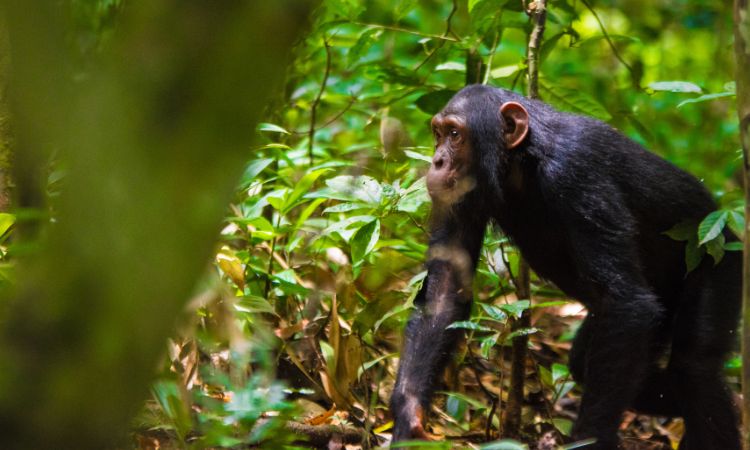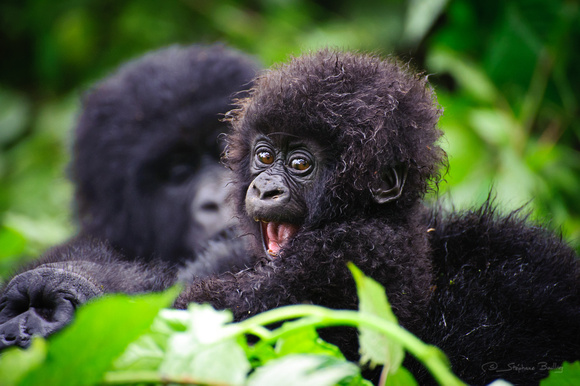Are Chimpanzees Dangerous: A Fascinating Insight
Chimpanzees (Pan troglodytes), our closest living relatives, share 98–99% of our DNA and captivate us with their intelligence, complex social structures, and human-like behaviors.
Renowned for their tool use, emotional depth, and playful antics, they are often portrayed as endearing creatures in media and zoos.
However, a critical question arises: Are chimpanzees dangerous? While chimpanzees are not inherently malicious, their physical strength, territorial instincts, and unpredictable behaviors can make them dangerous in certain contexts.
The Nature of Chimpanzees: Strength and Instincts
To understand whether chimpanzees are dangerous, we must first examine their biology and natural behaviors. Chimpanzees are powerful animals, with physical and behavioral traits that can pose risks.
Extraordinary Physical Strength
Chimpanzees are significantly stronger than humans, estimated to be 1.5 to 2 times stronger pound for pound. An adult male chimpanzee, weighing 40–70 kg (88–154 lbs), can generate grip forces of 200–300 kg (440–660 lbs) and pull weights exceeding 400 kg (880 lbs).
Their muscles, rich in fast-twitch fibers, enable explosive bursts of power, ideal for climbing, fighting, or defending territory.
This strength makes even unintentional actions—like a playful shove—potentially harmful to humans.
Their skeletal structure, with long arms and robust bones, enhances their ability to deliver powerful blows or wrestle opponents.
In conflicts, chimpanzees use their strength to bite, scratch, or strike, often targeting vulnerable areas like the face or limbs.
These physical capabilities, while essential for survival in the wild, can make chimpanzees dangerous if provoked or threatened.
Social and Territorial Behaviors
Chimpanzees live in complex communities of 20–150 individuals, governed by strict hierarchies and social bonds. Males, in particular, engage in aggressive displays—such as charging, throwing rocks, or shaking trees—to assert dominance or defend their group.
These behaviors can escalate into physical confrontations, especially during competition for mates or resources.
Territoriality is another key factor. Chimpanzee communities fiercely protect their home ranges, sometimes engaging in violent clashes with neighboring groups.
These conflicts can result in severe injuries or death, as seen in studies at Gombe Stream National Park, where researchers documented lethal intergroup attacks.
This territorial instinct can extend to humans encroaching on their habitat, increasing the risk of aggression.
Emotional Complexity
Chimpanzees are highly intelligent and emotional, capable of experiencing fear, anger, stress, and affection. While this makes them relatable, it also means they can react unpredictably to perceived threats or stressors.
A chimpanzee feeling cornered, scared, or provoked may lash out, even if the trigger seems minor to humans.
Their ability to form strong social bonds also means they may defend group members aggressively, adding to their potential danger.

Chimpanzees in the Wild: When Are They Dangerous?
In their natural habitats across Central and West Africa, chimpanzees are generally wary of humans and prefer to avoid contact. However, certain situations can lead to dangerous encounters.
Human Encroachment and Habitat Loss
Deforestation, agriculture, and poaching have reduced chimpanzee habitats, forcing them into closer proximity with humans. In areas where food is scarce, chimpanzees may raid crops, leading to conflicts with farmers.
Such encounters can turn dangerous if chimpanzees feel threatened or if humans attempt to retaliate. For example, in Uganda’s Budongo Forest, crop-raiding chimpanzees have occasionally injured farmers defending their fields.
Poaching and the bushmeat trade further exacerbate tensions. Chimpanzees targeted by hunters may become aggressive in self-defense, especially if their infants are threatened.
These interactions highlight how human activities, rather than inherent aggression, often drive dangerous behavior.
Provocation and Miscommunication
Chimpanzees are sensitive to human actions, and behaviors like direct eye contact, loud noises, or sudden movements can be interpreted as threats. Tourists or researchers approaching too closely without proper guidance risk triggering defensive responses.
In Gombe, early studies noted that provisioning (feeding) chimpanzees to attract them led to increased aggression, as they became bolder around humans.
Responsible ecotourism practices, such as maintaining a 7–10 meter distance and wearing masks to prevent disease transmission, are now critical to minimizing risks.
Predatory Behavior
While rare, chimpanzees occasionally hunt humans, particularly children, in areas where prey is scarce. In regions like Tanzania’s Mahale Mountains, isolated incidents of chimpanzees attacking young children have been reported, often linked to food stress or habituation to humans. These cases are exceptions but underscore the importance of respecting their wild nature.
Chimpanzees in Captivity: A Different Kind of Risk
In captivity—zoos, sanctuaries, or private ownership—chimpanzees pose unique dangers due to their proximity to humans and altered environments.
Unpredictable Behavior
Captive chimpanzees, even those raised by humans, retain wild instincts. Their strength and unpredictability can lead to dangerous incidents, especially as they mature.
Juveniles may seem playful, but adult chimpanzees (around 8–10 years old) become more assertive and less controllable.
A 2009 incident in Connecticut, where a pet chimpanzee named Travis attacked a woman, causing severe injuries, highlighted the risks of keeping chimpanzees in domestic settings.
Travis, weighing 90 kg, was stronger than multiple humans combined, and his aggression was triggered by a seemingly minor event.
Stress and Confinement
Confinement can exacerbate aggression in captive chimpanzees. Lack of space, unnatural social groups, or insufficient enrichment may lead to stress-induced behaviors, such as biting or attacking handlers.
In poorly managed facilities, chimpanzees have been known to escape by bending steel bars or breaking locks, demonstrating their strength and ingenuity.
Sanctuaries like Chimp Haven in the US or Sweetwaters in Kenya prioritize naturalistic enclosures and social groups to reduce stress, but even these settings require strict safety protocols.
Human-Chimpanzee Bond Misunderstandings
Chimpanzees raised by humans often form strong bonds, but these relationships can become dangerous. A chimpanzee may act protectively or jealously, perceiving other humans as threats.
Handlers must maintain professional boundaries, as affectionate gestures like hugging can escalate into aggressive behavior.
Training and socialization cannot fully eliminate their wild instincts, making vigilance essential.
Are Chimpanzees Inherently Dangerous?
Chimpanzees are not inherently dangerous in the sense of seeking to harm humans unprovoked. Their aggression is typically a response to specific triggers—threats, stress, or resource competition—rooted in their survival instincts.
In the wild, they are more likely to flee than attack unless cornered or defending their group. In captivity, their danger stems from unnatural environments and human missteps rather than malice.
However, their physical strength, emotional complexity, and unpredictable nature mean that chimpanzees can pose significant risks. A single bite or strike can cause severe injury, and their ability to act on instinct rather than reason amplifies the potential for harm.
For comparison, a chimpanzee’s bite force (up to 1,300 PSI) rivals that of a large dog, and their strength surpasses most human capabilities.
Minimizing Risks: Safety Around Chimpanzees
To coexist safely with chimpanzees, whether in the wild or captivity, specific precautions are essential:


